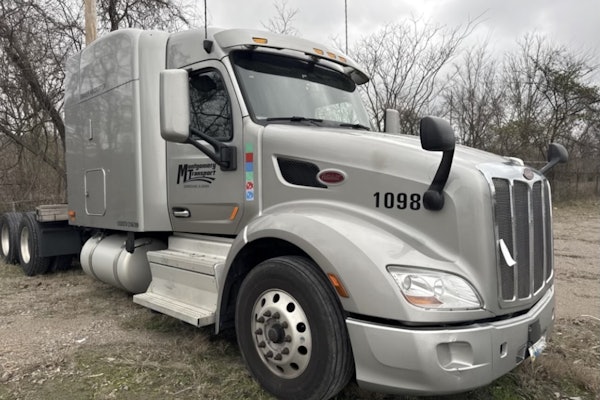How has your driver recruiting changed during the tight market?
“We haven’t changed it much. We’re kind of unique among trucking companies since most of our drivers are home every weekend. That gives us a niche. So far, we’ve been doing quite well.”
Tom Vicry, safety and human resources director
Volunteer Trucking Inc., Dayton, Tenn.
“We used to do very little advertising, but now we’re using more types of advertising than just the typical newspaper – like the Web and magazines.”
Justin Poss, president
Earth Transport Co., San Antonio
“We started a recruiting referral program with our current drivers. At the end of the summer, the winner gets a choice of deep-sea fishing or Richard Petty driving experience. We also have referral and sign-on bonuses.”
John Williams, president
Tidewater Transit, Kinston, N.C.
“At the first of the year we increased driver pay across the board. Recently, Dayton, Ohio has been a very tough market. We don’t have much turnover because we are short haul, but we always have empty trucks.”
Tim Stoeck, controller
Foodliner Inc., Dayton, Ohio
Next month’s question:
How should FMCSA change the hours rules?
Send answers to [email protected]; fax (205) 750-8070.
More than vegetable oil
Thank you for your mention of biodiesel in your July 2004 cover story “Making Trucks Earth-Friendly.” I agree biodiesel is an excellent energy alternative that is more Earth-friendly and provides other substantial benefits. However, I would like to clarify your definition of its makeup. The article may have left readers with the impression that biodiesel is vegetable oil mixed with diesel.
Biodiesel is made through a chemical process, and is not to be mistaken with raw vegetable oil. Once the process is complete, it can be used as fuel in its pure form (B100), or in different concentrations. B20 (20 percent biodiesel blended with diesel as the remainder) is a commonly used blend. Biodiesel is held to a national standard through the American Society of Testing and Materials.
As pointed out in the article, biodiesel provides emissions reductions, superior lubricity and enhanced cetane. Diesel engines require few, if any, modifications to use biodiesel. In addition to these performance and environmental benefits, biodiesel is renewable, contributing to our nation’s energy security and economy.
Here at MoDOT, we’ve used biodiesel very successfully for more than three years. We’ve had a great experience with no problems. Performance of our diesel vehicles and equipment, including our fleet of several hundred dump trucks, has been flawless. Our mechanics have even said that they enjoy working around biodiesel because the engine exhaust is less irritating. To top it off, we feel we’re doing the right thing in reducing our consumption of imported petroleum with a cleaner burning fuel that supports the family farm.
Donnell M. Rehagen, fleet administrator
Missouri Department of Transportation
Doe dodging a deer
I read “Doe, a Deer!” (Preventable or Not, July 2004) with great interest, having been a state trooper for 23 years and having investigated hundreds of car-deer accidents myself.
The article said the driver was “cruising his rig along a two-lane country road, encountering almost no traffic.” With this in mind, it’s better to go where the deer has been and not try to outrun where it is going. If drivers keep this in mind, they will be much safer.
Lane Ogden, safety director
Thurel Mason Trucking, Aurora, Utah
Make your point
Send letters to Feedback, Commercial Carrier Journal, 3200 Rice Mine Road N.E., Tuscaloosa, AL 35406; fax (205) 750-8070, e-mail [email protected]. We reserve the right to edit submissions for length, grammar and appropriateness. All letters must include contact information.








